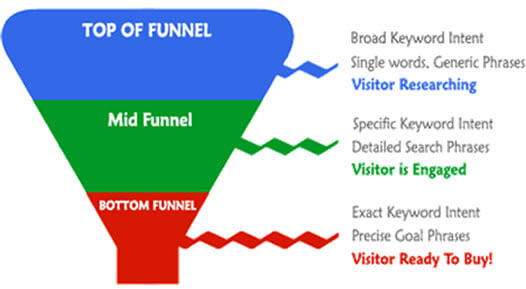SEO is one of the most cost-effective marketing strategies you can use as a business.
Every day, we perform tens, if not hundreds of searches on search engines for various reasons. Customers are actively looking for and comparing products, and for many, it is the main way they come in contact with a product and business.
In fact, the main way many customers come in contact with a company is by searching for something on Google and then finding a company that meets their need. But at the same time, few searchers on Google scroll past the first page, and therefore, it is crucial to rank well on Google if you want your business to be found.
There’s a joke among Search Engine marketers that if you want to hide a dead body, you do it on the third page of Google, and there’s a lot of truth in that.
The bottom line is, if your business isn’t ranking well on Google, customers will have a hard time finding your business. And as a result, you’re leaving a lot of money on the table, and missing out on many valuable customers.
The answer is Search Engine Optimization, however, SEO is an art, and there are many different elements that you need to pay attention to. An aspect that many marketers forget is keyword researching.
In this article, we’ll, therefore, go a little more into detail about keyword research and how you can use keyword research to identify valuable keywords that you need to rank for in order to reach your target audience in a cost-effective way.

The importance of Keyword research in SEO
Most people are aware of the huge benefits that search engine optimization offers.
If you’re not aware of yet, let’s look at some statistics that prove the immense opportunities that it offers, and why it is crucial as a business to be found on Google.
- 67k searches are performed on Google every second
- 39% of all global ecommerce traffic comes from search
- 93% of all online experiences begin with a search engine
- Nearly 80% of users ignore paid ads in search results
- 50% of all searches will be voice searches by 2020
- 58% of searches come from mobile
- 97% of page-one results have at least one image on the page
- 46% of all Google searches are local
With that said, SEO is something that businesses cannot afford to neglect.
But at the same time, SEO is not just about ranking well on Google. It is even more important to rank for the right search terms that get the right people to your website.
This is where keyword research comes in.
Keyword research means that you actively research keywords that are relevant to your business (that you want to rank for), and then take appropriate actions in order to rank for those keywords. Your customers are searching for things related to your business on Google, but this means that it is important that you know what they are searching for. And more specifically, which keywords are valuable to your business so you can attract laser-targeted potential customers.
But the problem with keyword research is that it has for a long time been a lengthy and time-consuming process. This has unfortunately meant that businesses have neglected this part, and took chances of which keywords they think their target audience searches for.
On the flip side, the good news is that there are now multiple tools available for business owners and search engine marketers that streamlines the job of doing keyword research.
Through keyword research tools, you can identify and collect tons of new profitable keywords, and at the same time, automate this process.
But with so many keyword research tools to choose from, how can you know which are the most accurate? How do you know which actually provide you with the right keywords that can prove to be beneficial for your company?
This keyword research free tool list has listed five of the best keyword research tools so you can compare and find the tool that you think is the best.

Check competitors
An unorthodox and underestimated way of doing targeted keyword research is by looking at your competitors.
This is the keyword research method that we have found to be the most effective as it means identifying tried and true keywords that your competitors are already ranking for.
This tactic involves looking at the keywords that your competitors are ranking for and then working to rank for those keywords yourself.
The good thing about this is that your competitors have already done the hard work of identifying keywords that are valuable and which attracts the right kind of people that will ultimately buy from you. With that in mind, you can skip the step of filtering away keywords that in some way are related to your niche and business, but which won’t prove to be financially beneficial for you.
With the help of this backlink checker software, you have 5 backlink checkers that you can use to identify the backlinks your competitors have and the keywords they rank for. The great thing about these tools is that they also help you find the backlinks that your competitors have.
And if you know a thing or two about SEO, you know that backlinks are the oxygen of great rankings on search engines. By identifying the backlinks your competitors have, you can actively go out and try to get links from those sites as well in order to ultimately rank for the search terms you’ve identified.
Conclusion
Keyword research is a crucial part of successful search engine optimization, yet still, it is something that many businesses neglect. Most businesses simply create content and focus on ranking for keywords that they think will be relevant to their business, but the problem with this is that SEO is a specific and very delicate marketing strategy. With that in mind, you need to be specific in order to succeed. And this is where targeted keyword research comes into play.


